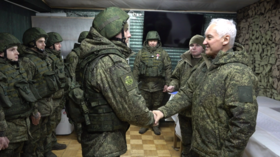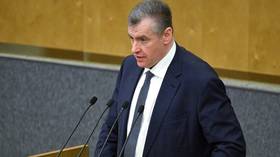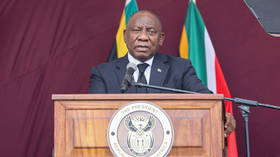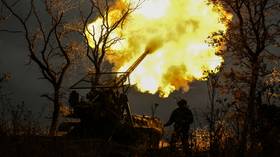Karadzic war crimes tribunal to begin in The Hague
The war crimes tribunal in the case of Radovan Karadzic begins in The Hague on Friday, with the former Bosnian Serb leader being tried on 11 charges, including genocide. Karadzic was Europe's most wanted man for more tha
A rally has been gathering in the centre of Belgrade every day since Karadzic’s arrest became known to the public. They have branded as traitors the Serb authorities who allowed the extradition.
“We are protesting against the current regime that extradited Radovan Karadzic to The Hague,” says Vladimir Djukanovic, a journalist and protester. “Many people support us but their views are ignored – so you don’t see them here. But if you ask, around 70 per cent would tell you they are opposed to this shameful extradition. The Hague Tribunal was created to punish only the Serbs.”
Karadzic was extradited to The Hague after being arrested in July, having spent 13 years on the run. He'd lived in Belgrade, disguised with a beard and long hair and working as an alternative healer.
He is charged with crimes against humanity and masterminding the genocide of Bosnian Muslims in Srebrenica in 1995.
His brother, Luka, says he could be found not guilty if people listened to the truth. He believes Karadzic shouldn’t be tried at all. RT caught up with Luka a day before his brother was due to appear in front of the Tribunal for the second time.
“I fear for his life,” he said. “He said himself he might die there. I want to remind you of the secret Karadzic-Holbrooke deal, the agreement with the man representing the U.S. in the Balkans at the time. Radovan was offered immunity if he disappeared after the war and he fulfilled his part – from 1998 he became totally anonymous. The Americans didn’t keep their promise. And the Americans often resolve their embarrassments by getting rid of problem people such as my brother.”
It's the tribunal's second highest profile case since former Yugoslav president Slobodan Milosevic was prosecuted. He died of a heart attack in his prison cell in March 2006, before his trial finished. And just like Milosevic, Karadzic has decided to represent himself in court.
General Bozidar Delic, now the Serbian National Assembly’s Deputy Speaker, spent 96 days in The Hague as a witness for Milosevic’s defence. He shared with RT his first-hand experience of the tribunal.
“It wasn’t just Milosevic who died in The Hague – his case is just the most obvious one,” he said. “I was there and my conclusion is that it's a political court which does not judge a person, but a whole nation. It is the only system in the world where the rules are constantly changing depending on who the defendant is.”
Vladimir Krshljanin, a former foreign relations advisor to Milosevic, agrees.
He said: “This is a killing machine – about a dozen Serbs have already died at The Tribunal, including President Milosevic himself. He was murdered – he was denied medical treatment when he needed urgent medical assistance. So anyone who is a Serb and gets there must be afraid for his life. And especially in Karadzic's case, with the whole controversy over the Holbrooke deal and the U.S. Administration. It is disgusting talking about that Tribunal and its behaviour. It should be cut, abolished as soon as possible – it’s a shame for the whole world.”
The extradition of Radovan Karadzic was one of the conditions for Serbia to get closer to EU membership. But many in Serbia still think that their country has nothing to gain from the move and that this trial is about to become yet another humiliation for their nation.












